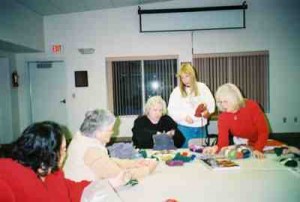Review by Ed Quillen
Local Fiction – April 2008 – Colorado Central Magazine
Exitt Recollected – Tales from the Dismal Trade
by Joe Stewart
Published in 2005 by Authorhouse
ISBN 1-4208-5175-6
If YOU WERE EVER AN English major, you likely know the term roman-a-clef, which means a novel which is based on real characters and events, with the names changed. Think of All the King’s Men by Robert Penn Warren, where Willie Stark is obviously based on Huey Long, or more recently, Primary Colors by Joe Klein, wherein the fictional candidate for the presidency of this nation bears an astonishing resemblance to Bill Clinton.
Exitt Recollected may not exactly fit as a roman-a-clef because it reads more like a memoir (albeit fictional) than a novel. And it comes with a disclaimer: “This is a work of fiction. With the exception of such known historical figures as Colorow, John Chivington, and Alfred Packer, all names, characters, and incidents are products of the author’s imagination or are used fictitiously and are not to be construed as real. Any resemblance to actual events, locales, organizations, or persons, living or dead, is entirely coincidental.”
But few will ever read that fine print at the start of the book, and even fewer could take it seriously.
Salida is the Spanish word for exit, and the Exitt of these tales, set in the 1940s, is a busy division point on the Denver, Salt Lake & Pacific Railroad. It sits on the Taveapont River about 25 miles downstream from the rival town of Vista Verde, which still holds that Exitt stole the Chivington County Courthouse from it. Leadville sits a ways farther upstream, while Cañon City lies downriver. Mt. Asbury, named for a noted Methodist, rises near town.
My direct knowledge of Salida lore extends only 30 years back, when there was a Stewart Mortuary next to the Elks Lodge more or less across the street from The Mountain Mail, which sat by Pete Salerno’s service station. In Exitt, the Dugan & Son Mortuary sits next to the Elks Lodge, across the street from the Exitt Departure and Bud’s Conoco.
With such grounding, I could make some reasonably informed guesses as to the bases for various characters in the tales. Ethel Barton at the newspaper; could that be Ethel Frazee Purdom, who retired not long before I got there and who “was a walking encyclopedia of the entire valley.”
The name of the new city editor at the Departure, Mary Eleanor Freeland, appears to be making some connection to Eleanor Fry, who toiled at the Mail 50 years ago and later co-authored Salida: The Early Years.
So it went throughout this book. Laura Oriole ran the town’s major whorehouse, while Salida had a Laura Evans. Goldfarb’s Furniture in Exitt? Salida had Goldberg’s Furniture when I moved to town. The Regina Tavern, might that be the Victoria? Police Chief Harold Thornburg, and there once was a Sheriff Harold Thonoff? A true old-timer in Salida could likely produce a Who’s Who of Exitt.
ALTHOUGH THE NAMES are clearly twisted from reality, the tales inside Exitt Recollected do seem more fictional, or at least they seldom resembled any local lore I’ve heard. Mostly they concern what often dominates the mental process of adolescent boys and young men: sex, girls, sex, and a few doses of whiskey and poker. The main characters all work at the mortuary, which also provides the regional ambulance service.
Stewart is a fine storyteller; the incidents flow right along with his ribald humor. Here’s a sample:
On the first Monday in November, Hollis Mullins, the rural postman for the high country, stopped by to tell us that he had just returned from Grubstake and that Tony Wonns had died some time back and his sister Jessie wished we would come and get him. She was pretty sure he was dead when he hadn’t moved for a week, she told Hollis, because he was pretty stiff and hadn’t said anything even when she and her other brother, Darryl, pried open the window and shoved Tony into a snow bank right outside their cabin.
Going to Grubstake this time of year was insanity. The county highway crews would only take a blade to the dirt road up there once or twice each winter and Hollis had to time his deliveries right after the road had been more or less opened. But this year he had an added handicap, the middle three fingers of his right hand had been shot away a month before while he was out hunting and that severely limited his operation of the steering wheel.
“How did that accident happen anyway?” the boss asked Hollis.
“That usual bunch I hunt with packed in high up on Colorow Mountain with our tents and all. And that idiot cousin of mine, Fred Hamby, couldn’t wait so the first morning of the hunt he got up before dawn to scout out an elk, in the dark of course, and he must have circled around and come back to our camp from a different direction. I had gotten up and put the coffee pot on the campfire and was standing there with my hands on my hips, enjoying the sunrise and I felt a sting on my hand just as I heard a shot and when I looked down those fingers were gone, slick as could be. Ol’ Fred got ’em without even wrinkling my pants, so he thinks he’s quite a shot.”
“Jesus,” said Sonny. “Aren’t you glad yo weren’t standing there taking a leak?”
If you’re easily offended or in solid support of Political Correctness, best you avoid this book, for you won’t get far without getting annoyed or worse.
But if you can enjoy some rowdy and raunchy tales, along with the sick humor that accompanies the mortuary trade in its informal moments, then you ought to enjoy Exitt, Recollected. Plus, if you’re familiar with Salida, there’s always the challenge of figuring out who’s who.


